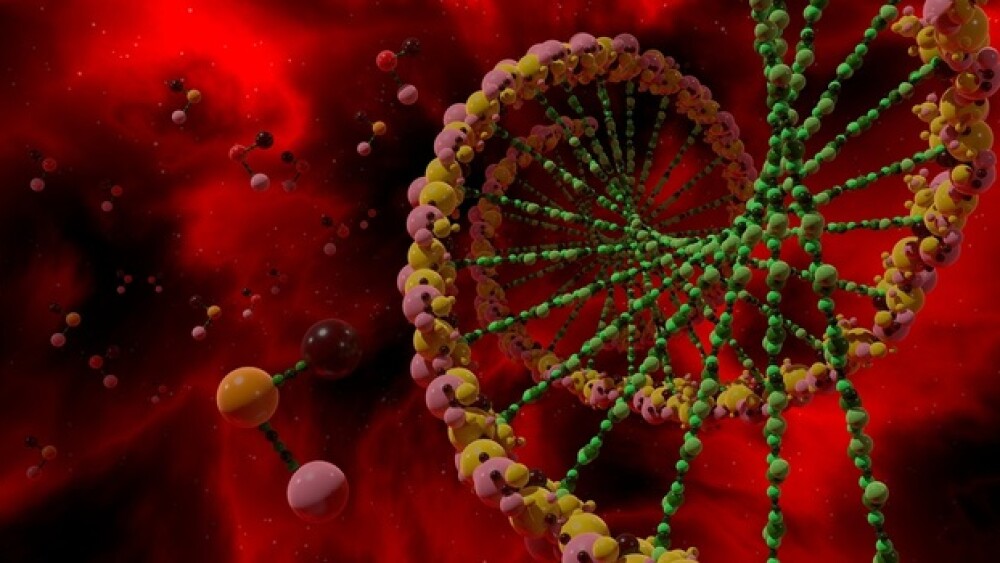Shares of CRISPR Therapeutics (-8 percent), Editas Medicines (-5 percent) and Intellia Therapeutics (-6.7 percent) are all plunging following the release of a report that claimed CRISPR-Cas9 gene editing may cause some dangerous side effects.
Shares of CRISPR Therapeutics (-8 percent), Editas Medicine (-5 percent) and Intellia Therapeutics (-6.7 percent) are all plunging following the release of a report that claimed CRISPR-Cas9 gene editing may cause some dangerous side effects.
A new study published in Nature Biotechnology shows that the technique could cause “extensive mutations and genetic damage.” Not only can the gene-editing technique cause cellular damage, Geneticists from the Wellcome Sanger Institute said the genetic damage can be difficult to discover through standard DNA tests. The scientists warn that specific testing must be required for any potential gene therapies, according to a statement issued by the Institute.
In the study researchers found that the gene-editing technique deleted thousands of DNA bases – some of them that were not close to the spot of the initial edit, the researchers said. The concern was raised because some of the deletions can silence genes that are supposed to be active, or on, as the researchers noted, and activate some genes that should be turned off – particularly genes that can cause cancer.
“We speculate that current assessments may have missed a substantial proportion of potential genotypes generated by on-target Cas9 cutting and repair, some of which may have potential pathogenic consequences following somatic editing of large populations of mitotically active cells,” the authors wrote in their study.
The geneticists said that previous research had not shown many “unforeseen mutations from CRISPR-Cas9 in the DNA at the genome editing target site.” The researchers then carried out a fully systematic study in both mouse and human cells. They discovered that the CRISPR-Cas9 technique “frequently caused extensive mutations.”
Allan Bradley, one of the study authors, said in a statement that the research is the “first systematic assessment of unexpected events resulting from CRISPR-Cas9 editing in therapeutically relevant cells.” Bradley said they found that changes in DNA have been “seriously underestimated.”
“It is important that anyone thinking of using this technology for gene therapy proceeds with caution, and looks very carefully to check for possible harmful effects,” Bradley said.
The issues raised in the 11-page Nature Biotechnology article come weeks after two other studies raised a similar concern. BioSpace previously noted that two studies published in Nature Medicine suggest that CRISPR-Cas9 is potentially linked to a cancer risk.
It should be no surprise that investors scrambled to dump the stock of various companies using that CRISPR-Cas9 technology, such as Editas, Intellia and CRISPR Therapeutics. STAT News noted in its coverage that within 20 minutes of the new study having been made public, leading CRISPR-Cas9 companies lost about $300 million in stock value.
The companies have reacted quickly in an attempt to quell investor concerns. Tom Barnes, Intellia’s chief innovation officer, told STAT that the company is not “Pollyannaish” about the technique and also stressed that with all the editing his company has done in mouse experiments, researchers “
“have not seen any [cancer-causing] transformation of these cells…”
Gene therapy essentially transforms cells inside a patient to harness their immune system to fight an invading disease on its own. “CRISPR” refers to Clustered Regularly Interspaced Short Palindromic Repeats that occur in the genome of certain bacteria. Cas9 is a CRISPR-associated endonuclease (an enzyme) known to act as the “molecular scissors” that cut and edit, or correct, disease-associated DNA in a cell.
This isn’t the first time that there have been concerns raised about CRISPR-Cas9. Last year a study that claimed the technique can cause unexpected mutations throughout the genome was later retracted. Another study has also shown that a body’s immune system can attack the Cas9 technique. As BioSpace reported in the cancer-risk article, researchers believe that such immune responses are manageable.





